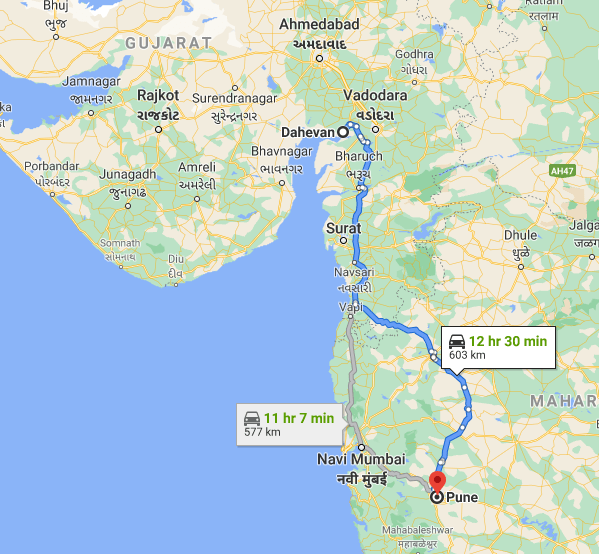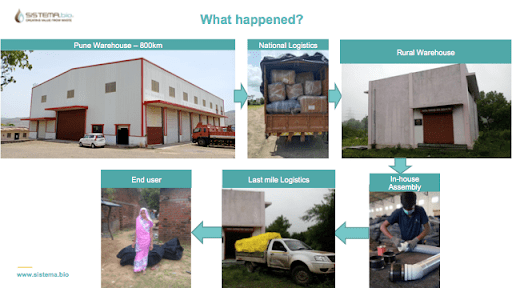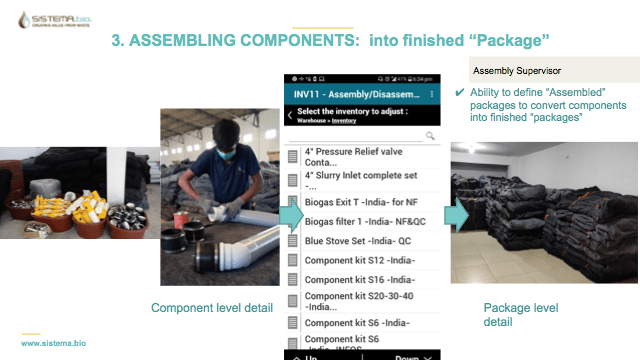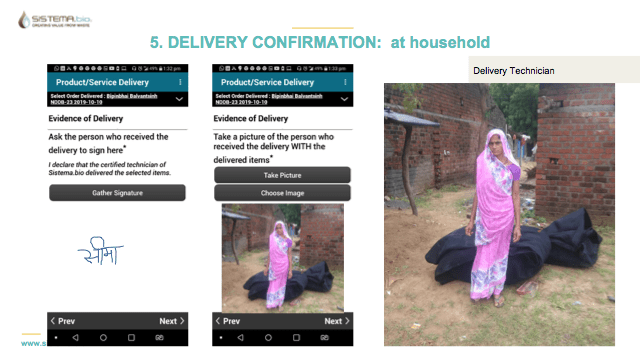
Search
Biogas producer Sistema.bio faced a daunting supply chain management challenge – assemble, deliver and install 368 biodigesters in the rural state of Gujarat, 600 kilometers (almost 400 miles) away from its central warehouse in Pune, India.

As if that wasn’t hard enough, Sistema.bio had 48 hours to kickoff the project – done in partnership with India’s National Dairy Development Board cooperative – and needed to source and then manage the movement, storage and assembly of more than 10,000 component parts that went into the nearly 400 completed biodigesters. The finished units, which convert manure into fertilizer and biogas for cooking, had to be delivered to customers by Sistema.bio field agents in remote areas with little connectivity, then installed and made operational in 50 days.
Describing the project during a recent webinar, Sistema.bio Technical Director Himanshu Mishra said TaroWorks’ mobile supply chain management system (TaroWorks Enterprise) was instrumental in getting the job done.
“What led to the timely completion and the … satisfaction of all the stakeholders in this project, were a bunch of factors out of which one of the key factors was very robust inventory management and a supply chain that we could develop in a very remote rural area and be able to serve that last mile demand of the user within a certain time and within a high quality threshold.”
To help speed up development of an inventory management and distribution system that would allow Sistema.bio to meet the tight timeframe of the India dairy farmer project, the social enterprise analyzed and visualized each phase of the supply chain.
“Every enterprise has its own material movement and management challenges so it’s important to sketch it out and build a tool that matches our … flow of materials and flow of information,” Himanshu explained during the webinar.
The objective was to make sure TaroWorks and Salesforce could be configured to reflect product movement from the central warehouse in Pune, to a rural warehouse nearer the customers, through the process of assembling the biodigester and packaging it for delivery to its final destination – the dairy farm.

Sistema.bio then identified five different sets of tasks needed to get the biodigester stored, transported between locations, assembled before installation and delivered to the end user. Appropriate forms and processes were created in TaroWorks for each of those five steps and the Salesforce CRM database was expanded to include the resulting data, which managers could analyze. The five stages were:

Himanshu said that being able to send partial packages containing some but not all of the product parts needed for biodigester operation was crucial given the time required for the biological process of converting manure into gas:
“It’s primarily the digestion process that needs to kick off … and kind of take its own time so we do have that flexibility of planning our installation in a way that we do a digester installation on day one and then we do a gas line installation on day number 30,” said Himanshu. “This ability to deliver partial packages also allowed the teams to be aggressively pushing on the digester package installation and … schedule the appliance package installation.”

Looking back on the successful completion of the National Dairy Development Board project, Himanshu learned several lessons, including the need to:
POST TOPICS
NEXT POST
Sign up to receive emails with TaroWorks news, industry trends and best practices.
TaroWorks, a Grameen Foundation company.
Site by V+V